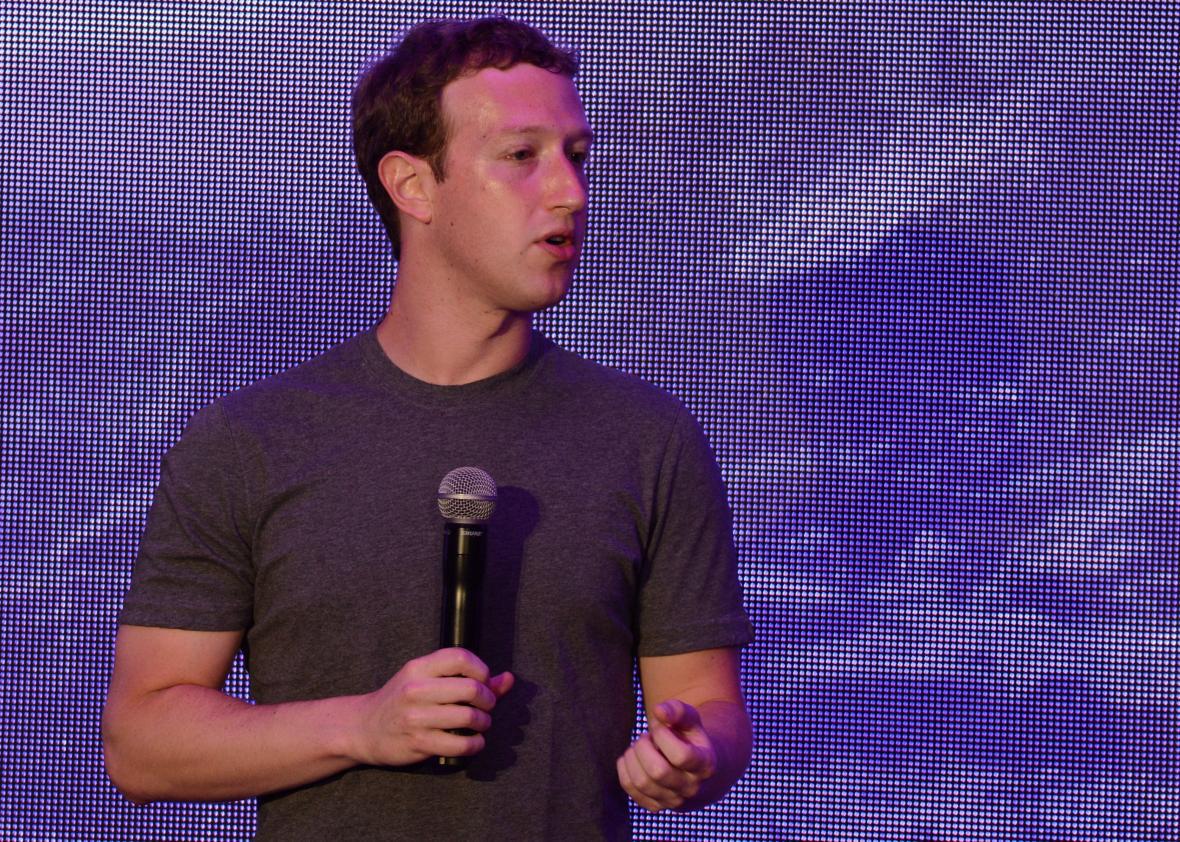In its ongoing quest to conquer—err, make the world a better place, Facebook is building an air force.
On Thursday, the company released a video of Aquila, an ultralight solar-powered drone designed to beam Wi-Fi to poor and rural regions via lasers. Made of carbon fiber, Aquila has the wingspan of a 737 but weighs less than a Prius. It flies at upwards of 60,000 feet, high above commercial flights, and Facebook claims it will stay aloft for three months at a time. The company is developing the drones under the auspices of its Internet.org project.
As Facebook explains it, a station on the ground transmits radio Internet to one drone, which then beams it to a network of other drones via a new laser technology that Facebook’s engineers invented. The laser system can transmit data at tens of gigabits for second, Facebook says. Those other aircraft then beam the signal to villages on the ground below them.
Facebook says it has completed the prototype and will begin testing Aquila soon. “If we can get the aircraft to fly reliably, then we’re well on the road to being able to deliver the Internet to a lot of people,” said Andy Cox, engineering lead for Facebook’s aviation team. (Cox was the CEO and chief engineer of Ascenta, the U.K.-based solar-powered drone startup that Facebook acquired last year.)
Here’s the video. It’s quite something:
Should Facebook’s drones take off, they’ll share the skies with Google’s Wi-Fi balloons, which are also racing to provide Internet to some of the estimated 2.5 billion people around the world who lack access. Meanwhile, SpaceX and Virgin Galactic–backed OneWorld are working on plans to beam Internet from satellites arrayed in low-Earth orbit, much higher than the balloons or drones but lower than the satellites that provide cellular data today.
Facebook’s stated aims for Internet.org are altruistic: delivering certain basic Internet services for free, without ads, to people who can’t afford a high-speed connection. But critics charge that the concept violates the principle of net neutrality and would amount to a second-class Internet for the poor. Facebook CEO Mark Zuckerberg has responded to the complaints, arguing, “It’s not sustainable to offer the whole Internet for free.”
